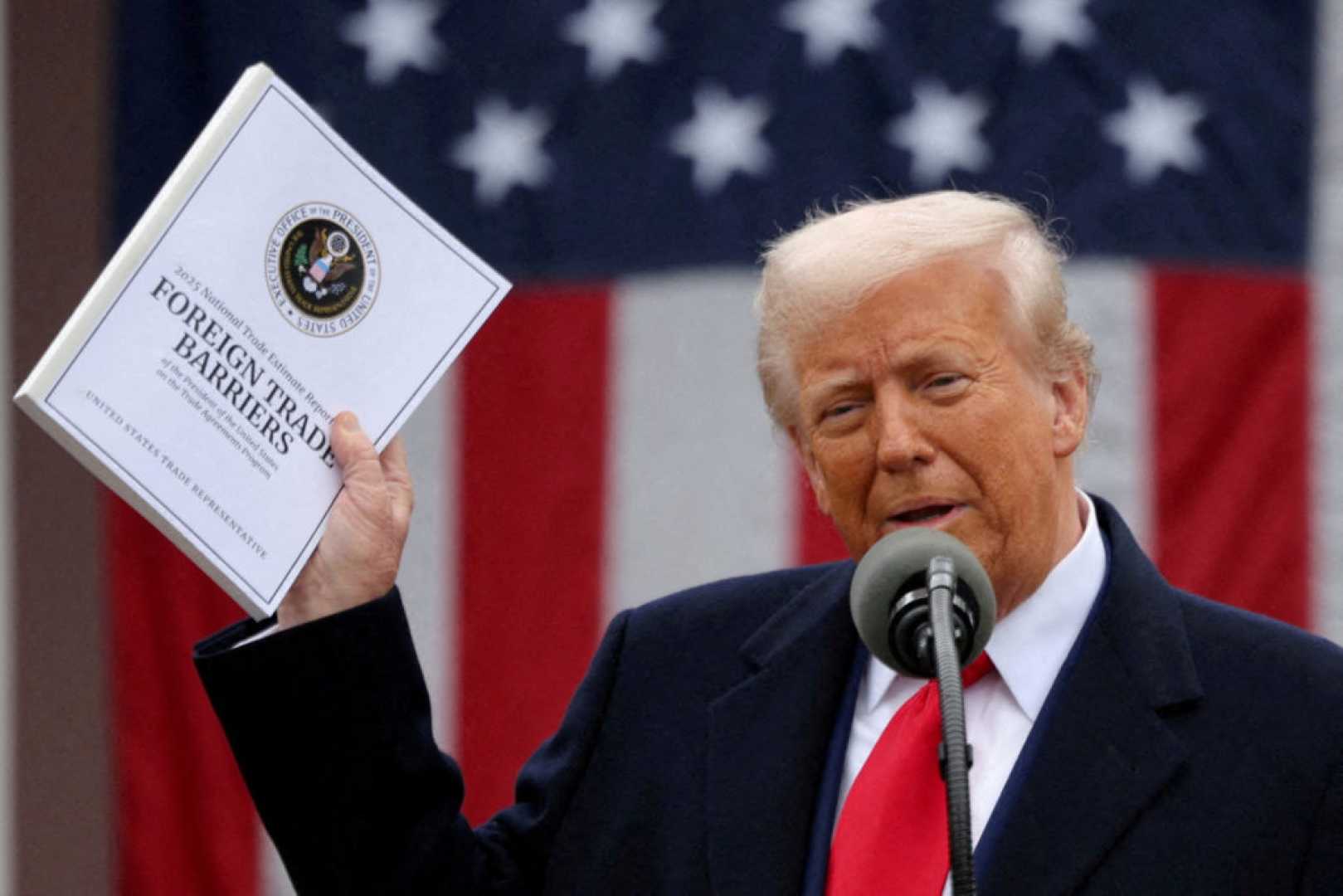Business
White House Denies Reports of Trump’s 90-Day Tariff Pause

WASHINGTON — The White House has dismissed reports that President Donald Trump is contemplating a 90-day pause on his tariff strategy. White House Press Secretary Karoline Leavitt labeled the reports as ‘fake news’ during an interview with CNBC.
The speculation arose after a headline cited Kevin Hassett, director of the National Economic Council, as suggesting that a tariff pause might be in consideration. In response, Leavitt affirmed Trump’s commitment to his current tariff policies, indicating that there will be no shift in strategy.
Trump himself fueled recent discussions about tariffs in a social media post on Truth Social, where he criticized the current trade conditions, stating it is ‘not sustainable’ for the U.S. to lose $1.9 trillion on trade. The statement reflects ongoing tensions regarding trade deficits with various countries, particularly China.
Earlier this week, Trump shared a video clip from Fox Business host Maria Bartiromo, who stated that ‘rates are plummeting, oil prices are plummeting, deregulation is happening.’ Bartiromo’s commentary further reinforced the administration’s narrative that economic conditions are under control.
As part of the ongoing trade narrative, Canada has initiated consultations with the World Trade Organization (WTO) concerning Trump’s implementation of 25% tariffs on automobile imports from Canada. The WTO noted that these consultations mark the beginning of a formal dispute process, allowing both parties to discuss an amicable resolution.
White House trade advisor Peter Navarro responded to criticisms of Trump’s tariffs by highlighting the potential for short-term job cuts reported by CEOs. He dismissed concerns that the tariffs would significantly impact U.S. manufacturing in the long run. ‘Investment can be made in auto parts factories that are still there, and it won’t take long,’ Navarro stated in a recent interview.
The financial community has responded with caution. JPMorgan Chase CEO Jamie Dimon acknowledges potential inflationary outcomes tied to the tariffs, leading to increased prices for both domestic and imported goods. In his annual shareholder letter, Dimon expressed concerns that the tariffs may contribute to a recession.
Elon Musk, CEO of Tesla, openly disagreed with some of the administration’s trade policies in a recent post advocating for free trade principles. In contrast, Musk has publicly supported Trump’s administration, emphasizing a need for cooperation between the U.S. and European Union regarding tariffs.
Amidst these conflicting narratives, global markets continue to react to Trump’s tariff policies, with significant drops observed in stock indices worldwide. Analysts have indicated that any potential recession could be exacerbated by Trump’s aggressive tariff measures, leading to further market instability.












